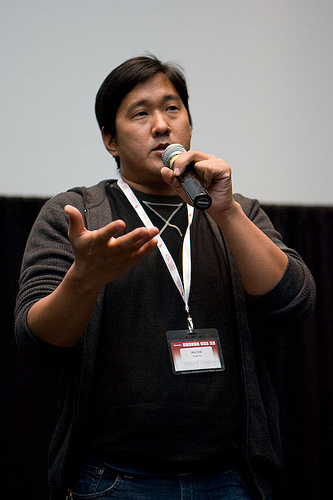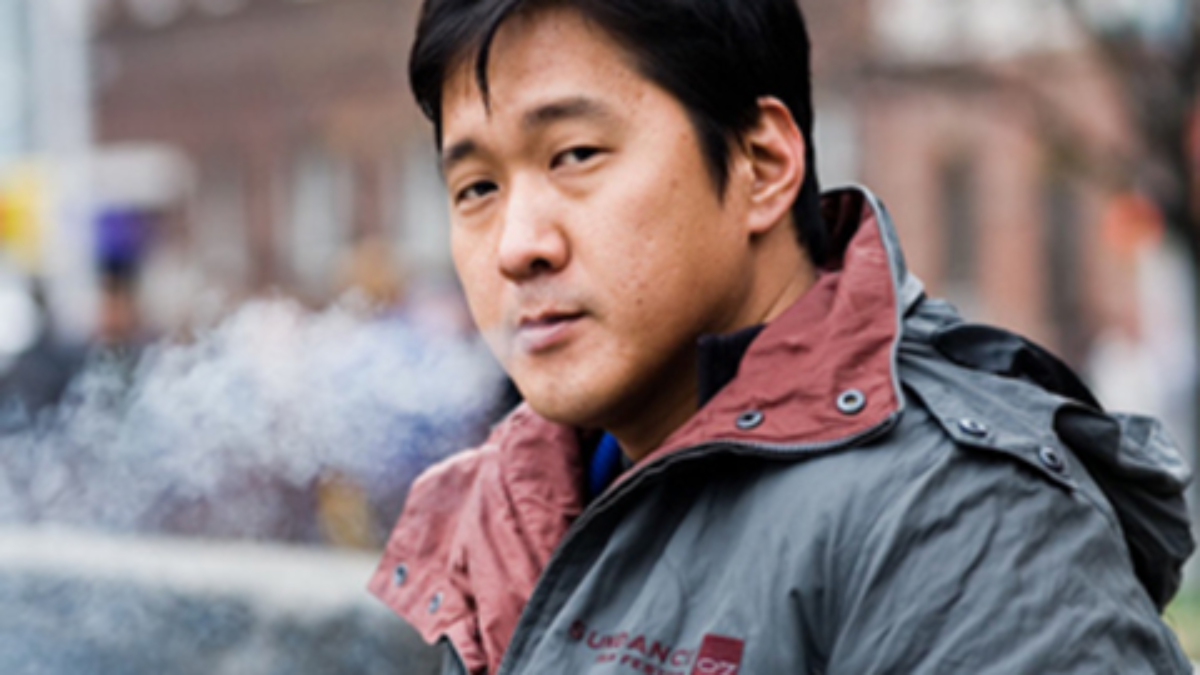 One film that paved the way for the sort of US/Korea production collaboration represented by Wedding Palace is Michael Kang’s West 32nd, a gritty crime drama set in New York’s Koreatown, produced by Teddy Zee and Korean studio CJ Entertainment. West 32nd had its world premiere at the 2007 Tribeca Film Festival, and was released in Korea in November that year. It was released on DVD in 2009. Kang also shared with CineVue his experiences with co-production and what happened with the film afterward.
One film that paved the way for the sort of US/Korea production collaboration represented by Wedding Palace is Michael Kang’s West 32nd, a gritty crime drama set in New York’s Koreatown, produced by Teddy Zee and Korean studio CJ Entertainment. West 32nd had its world premiere at the 2007 Tribeca Film Festival, and was released in Korea in November that year. It was released on DVD in 2009. Kang also shared with CineVue his experiences with co-production and what happened with the film afterward.
CineVue: Where did the idea of a US-Korean co-production come about? Was this idea in your mind from the beginning, or did it come up later?
Michael Kang: Once we had the script ready to go, it was something that I had imagined would be the only way to get the film made. We had shopped the script around town and though no one said it outright, there was definitely a sense that US companies didn’t really understand why the film had to be about a Korean American going into the Korean American community. When we were writing the script though, we were just interested in telling the story and hadn’t really thought about the logistics of getting it made.
What were the advantages of being an international co-production, and conversely, what were the challenges of such a production? Were language barriers an issue?
The advantage was that many of the more nuanced aspects of the story didn’t need to be discussed. There was support for the story and it definitely gave us much more access to Korean talent which is how we found Jun Kim and how we were fortunate enough to have the cameo by Joon Ho Jung. As far as language goes, that was definitely a challenge especially with my limited Korean, but when it came down to it, everyone wanted the same thing, a good film.
What was the reaction to the film (both audience and critical) in the US and in Korea, and how did the reaction in both countries compare?
There was a strong critical response in both countries. For Koreans, they were very taken by this look into the Korean American community which they know very little about. In the past decade or so, there has been more of a fascination with it. In the US, the strongest response has been from Korean Americans who felt validated by the film. The tougher hurdle which I don’t think was handled as well as it could have been was the marketing of the film. I think in both countries, they had a tough time figuring out how to sell this to audiences.
Are you satisfied with the performance of the film (both box office and critical) in both countries?
As I said, I think that the marketing wasn’t handled as well as it could have been. I think we had an opportunity to get this film out and really put Korean America on the pop culture map. I think that the bigger issue was that the financiers were hoping to not have to handle distribution so they didn’t have a strong distribution plan and it only went downhill from there. That was when working in three different time zones was most challenging.
In general, what are your thoughts on how successful these collaborations are? Since your film, there have been a number of US/Korean co-productions, other indie films such as Gina Kim’s Never Forever, Grace Lee’s American Zombie, and Christine Yoo’s Wedding Palace, as well as bigger budget productions such as Na Hong-jin’s The Yellow Sea. How do you feel each country benefits from this method of production?
I think it’s all still a work in progress. I think everyone is waiting to see a mold to work from and the formula hasn’t been perfected. Unfortunately, the other side of it is that in the entertainment industry, there is no true formula. You make it up as you go along every time you go out there. I don’t know if any of these films became a hit internationally, that that would necessarily make it any easier to make lightning strike a second time. The one thing that I am hopeful about is that there is more of an open dialogue between Koreans and Korean Americans. I think the groundwork that these films have laid may help for more.
Do you see any connection between this trend of US/Korea co-production and the longer practice of US remakes of Korean films, the latest announced being Spike Lee’s upcoming version of Oldboy?
There isn’t really a connection. They are parallel and in some ways maybe help each other, but I don’t think there is a direct correlation. If anything, I think the remakes reinforce the idea that Hollywood films should be predominately non-Asian casts. I think the crossing over of talent like Jun Jee-hyun [Gianna Jun], Lee Byung-hun and Rain has more of a positive effect on Korean/Asian American films.
Contributed by Christopher Bourne. Chris is a writer and cinephile. His film reviews and articles have appeared in Senses of Cinema, Meniscus Magazine, The Brooklyn Rail and other publications. He blogs on film at The Bourne Cinema Conspiracy. Follow him on twitter @bournecinema

